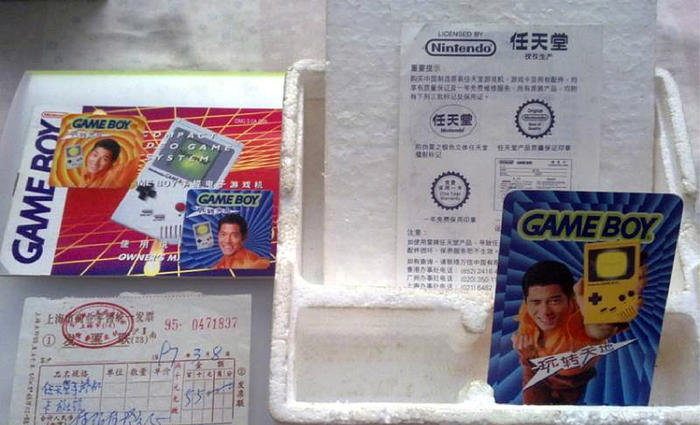
Throughout the years, iQue has been out of public sight, strayed away from everything happening in the gaming industry. When gamers in China are cheering for Xbox One and PS4's official release in Mainland China, they could barely remember the existence of iQue; when Pokémon fans in China are going wild over the series' first ever official Chinese language release, not many of them knew that the company was the one in charge of its Simplified Chinese localization.
On May 31th, 2016, iQue announced on its official website that adding funds with iQue point cards was no longer supported on the DSi shop. For many, the news itself was not as surprising as the fact that the company was still in business.
iQue is a forgotten company. Throughout the years, iQue has been out of public sight, strayed away from everything happening in the gaming industry. When gamers in China were cheering for Xbox One and PS4's official release in Mainland China, they could barely remember the existence of iQue; when Pokémon fans in China are going wild over the series' first ever official Chinese language release, not many of them know that the company is the one in charge of its Simplified Chinese localization.
Founded 14 years ago (as of 2016), iQue was more a bystander of the China's video game industry. In the past 14 years, single-player games lost their appeal, online games gained their popularity, smartphone games crashed into the market, and consoles made their ice-breaking attempt. However, iQue was a bystander of all these changes.
The author interviewed five different former iQue employees who worked at different times in different departments, and pieced up this forgotten history of iQue with their memory fragments. Much information only existed as rumors and was hard to validate, so this article may not be 100% accurate and objective, but should still be enough to serve as a reference for those interested in this topic.
Due to the request of anonymity and hiding personal details, these five former employees were not differentiated and will only be collectively referred to as "iQue former employees" in this article.
"Yen is also here today, so let's give him a warm welcome!" Howard Lincoln announced to the audience, at the E3 Pre-show press conference, on May 12th, 1999.
Dr. Yen stood up to the audience's applause.
During the conference, Nintendo announced the console with the codename "Dolphin", known as the GameCube when it was released. The team who developed Dolphin’s GPU was led by no other than Dr. Yen. He was 45 years old back then, and has been working around Silicon Valley for over a decade.
Dr. Wei Yen (颜维群) was born in Taiwan. He had a brother 3 years older, named David Yen (颜维伦). David had been getting good grades since he was young and was a top student for his parents. Dr. Yen hated to be called "the younger brother of David Yen", so he always chose a school different from his brother’s choice, be it the secondary school or university.
In the 1970s, both of the brothers went to the U.S. for further education, with David studying at University of Illinois and Dr. Yen at Purdue University, where he later earned a Doctorate degree. Dr. Yen first worked as a researcher at HP. Two years later, the brothers, along with three other people, co-founded Cydrome. They entered the microprocessor market, with David in charge of hardware and Dr. Yen in Charge of software.
This was their first attempt at starting their own business. Their company lasted for four years, reaching a maximum of 180 employees at its peak. Later, due to the rise of high performance workstations, Cydrome's products lost their market share and the company went bankrupt in 1988.
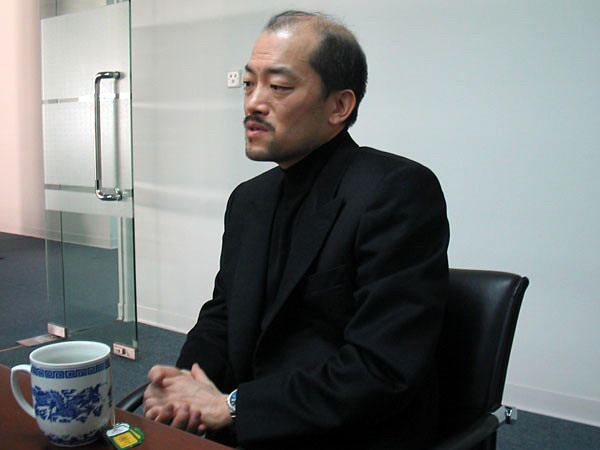
"Most people just argue at work, but since Wei Yen is my brother, he would continue arguing with me after work at my house. So in the end, we went in different ways." Said David.
The Yen Brothers led different paths from then on. David Joined Sun Microsystem, focusing on server research and development. He later became the highest-positioned Chinese person at Sun.
Dr. Yen, on the other hand, joined Silicon Graphics, Inc. (SGI), and went into the career of Graphics technology. The famous Graphics API standard known as "OpenGL" was created under the lead of this "Quiet, introverted, and creative young man".
Dr. Yen became the Senior Vice President of SGI in 1992, when he led the acquisition of the microprocessor manufacturer MIPS, and later became director. In a year, he led MIPS from loss to profits, and expanded their business to consumer electronics. The R4300 processor for the Nintendo 64 and R3000 processor for PlayStation are all manufactured by MIPS.
In August 1993, SGI signed a contract with Nintendo where the former would develop the Graphics processor for Nintendo's "Project Reality", which would be known as Nintendo 64 when it was released 3 years later.
By then. Dr. Yen has become the third most important figure of SGI. That was when this one important client, Nintendo, was delivered to Dr. Yen. From that point, he started a long path of cooperation with Nintendo that would later last for more than twenty years.
One year after the contract was signed, James Clark, founder and Chairman of the Board of SGI, left the company and founded Netscape, where he released the world-famous Netscape browser.
"Had Nintendo 64 released one year earlier, we wouldn't have the Netscape browser." said Marc Andreessen, a co-founder of Netscape. The first meeting after Netscape's founding was not about browsers, but Nintendo. Clark wrote a twenty-page product planning draft to provide internet services for the Nintendo 64.
In the coming years, many executives at SGI, Dr. Yen indluded, left the company. Unlike his elder brother, Dr. Yen likes to bring his ideas into actual products, so he started another new business .
He again cooperated with Clark, founded Navio under Netscape in 1995, and started creating internet-based applications for game consoles, interactive TVs and smartphones. This idea was once scorned by a Microsoft executive: "Who would print their business proposals or write to their grandmothers on a Nintendo game console?"
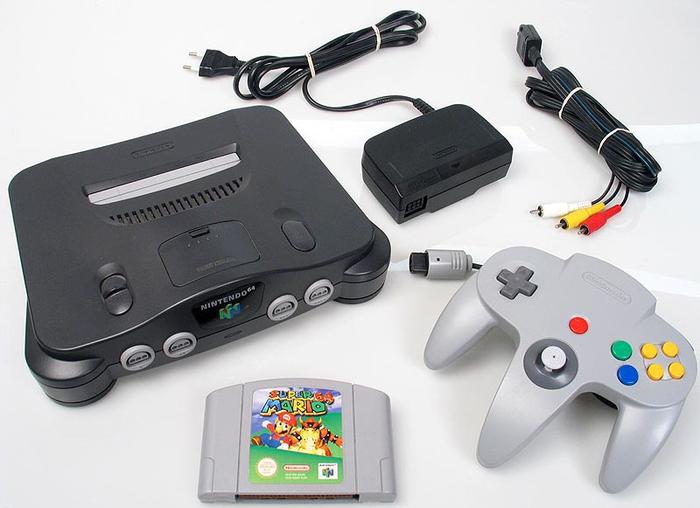
One of Yen's target clients was Nintendo. In September 1996, the Nintendo 64 was launched in North America. Later this year, some media reported that Navio would cooperate with Nintendo, developing internet applications for Nintendo 64, providing services including online multiplayer, demo downloading, music streaming and web browsing. The president of Nintendo at the time, Hiroshi Yamauchi, also "showed great interest in Navio's great potential".
Reports showed that both companies had many contacts with each other, yet they never got together for a collaboration. In 1997, Navio merged with Oracle's NCI, renamed Liberate, and went listed in the U.S. two years later.
"Dr. Yen is an energetic and annoying guy, and he's always pushing everyone into doing their best." Wrote one of Navio’s former employees. "He took great consideration during the merging process, got everyone taken good care of, and then, he vanished."
After the merge with NCI, Yen left Navio and went back to Graphics, his familiar field. In late 1997, he got an investment from Acer Inc., and founded ArtX along with Yen's former colleagues at SGI.
At that time, Nintendo had lost trust in SGI due to changes in executive personnel, and was looking for a new partner. After contacting companies like 3DO and Samsung, Nintendo finally chose the newly-found small company lead by Yen.
"Nintendo emphasized the relationship between individuals, rather than that between companies." said Greg Buckner, ArtX's vice president.
ArtX started out with a group of 20, half of which were from SGI, and were the core people of the Nintendo 64 GPU development.
Nintendo reached out to ArtX not long after the company was founded. “We didn't really want to change our original plans, but Nintendo gave us great offers, plus it was also a great opportunity for us." said Tim Vanhook, one of ArtX's co-founder. The company had originally planned to work on PCs, rather than game consoles.
Nintendo and ArtX's cooperation enraged SGI, who didn't want to lose such an important client. SGI filed a lawsuit against ArtX, accusing them of unfair competition, theft of trade secrets, and contract breach. Dr. Yen was among the accused.
Months later, SGI quietly dropped the lawsuit, possibly under Nintendo's pressure. ArtX and Nintendo officially signed the contract, where the former would be developing system logic and graphic processors.
In May 1995, at the E3 Pre-show press conference, Nintendo officially announced this new console, introducing Dr.Yen and ArtX to the participants.

In the early 2000, before the completion of GameCube's GPU development, ATI aquired ArtX for US$400 Million. Thanks to this acquisition, two years later, ATI took advantage over Nvidia with the GPU R300, also known as the Radeon 9700.
After the acquisition, Yen entered ATI's board of directors, and later became the director at MoSys, a memory manufacturer. The 1T-SRAM, used by consoles such as GameCube and Wii, is manufactured by MoSys.
Also in 2000, Yen participated in the foundation of three new companies--RouteFree, Kuni, Gware, all of which are closely related to Nintendo.
RouteFree was later renamed BroadOn, which was behind many Intellectual Properties related to Nintendo, including the motion recognition for Wii, Virtual Console digital licence protection, and Wii channels.
iKuni was later renamed AiLive, which co-created with Nintendo "Live Move Pro", a developer software that facilitates the development of Wii games.
iGware focused on cloud services. Cloud services for consoles such as Nintendo DS, Nintendo 3DS, Wii and Wii U were all powered by iGware.
Dr. Yen once told his brother David:"It's better to print stocks with a new business than to earn a salary." This was his creed.
In 2001, after starting various new businesses in the Silicon Valley, Yen turned his vision towards the other side of the Pacific, a land that was familiar, yet also unfamiliar.
In 2001, Nintendo was shifting into the next generation as the Nintendo GameCube released in Japan. In June 2002, Hiroshi Yamauchi retired from Nintendo, and Satoru Iwata became the next President of Nintendo. He was the first leader of Nintendo not from the Yamauchi family.
During this period of change, Nintendo and Dr. Yen decided to join venture and found a new company, in order to release Nintendo products in Mainland China.
This was not the first time Nintendo tried entering the Mainland market. In the mid 1990s, various handhelds of the GameBoy series, including the original GameBoy and the GameBoy Color, were distributed in Mainland China by Mani Toys Ltd. The Chinese edition had Chinese text on the box, included manuals in Chinese, and a calendar card featuring Aaron Kwok's photograph. Since the "Four Heavenly Kings" were the top popular singers in Chinese-speaking regions at the time, Wanxing invited Kwok to advertise their products, including TV commercials that would be aired on Mainland TV channels.
However, during the 1990s, other Nintendo consoles, such as the Famicom, Super Famicom and Nintendo 64, did not get any official release in Mainland China.
To Nintendo, Mainland China was a market of great potential, but not a safe one.

The primary risk came from the policy. In 2000, the Chinese government issued the "Feedback regarding the launch of special operation on video game arcades". Article 6 stated that all the production, sales, and import of all game consoles are now illegal, except those manufactured for international trade.
Unlicensed imports and piracy were also long-standing severe issues. From Dongmen and Huaqiangbei in Shenzhen, to Dashatou and Wanguo Plaza in Guangzhou and Gulou in Beijing, imports and bootlegs were the bulk of the video game market in Mainland China, and can be seen in any game store within the country.
In these game stores stood consoles of the new generation--the PlayStation 2, the Xbox, and the GameCube. Modchips for PS2 and Xbox have already matured, providing piracy support right after installation. The GameCube, on the other hand, had no mod chips at the time, so it sold way less than the other two in China despite being a lot cheaper.
It was estimated by the media that in the year 2002, around 200,000 imported PlayStation 2 consoles were sold in China, with only 10,000 - 20,000 GameCubes units sold. The GameBoy Advance had a soaring sales at around 400,000, yet most owners played their games on flashcarts or bootlegs, leaving almost no customers left for genuine copies of GBA software.
From Nintendo's perspective, it was probably the safest option to have a company with both distribution and development skills to export its products to the Mainland market. Also, this company had been a partner of Nintendo for a number of years.
"Dr. Yen also had great hopes in our country, with such a huge market from over a billion people and a rising middle class," said a former iQue employee. Dr. Yen believed that the gaming industry in China would soar, not after two or three decades, but in just a few years' time.
In the meantime, Sony was also taking action. In October 2002, Sony's President Kunitake Ando made an announcement that PlayStation 2 would be available for sale in Mainland China. Soon, discussions over the Chinese edition of PS2 spread across all major gaming forums in Mainland China.
In Early March 2003, a new job offer had quietly appeared on the internet. Various jobs offers were provided, including cyber engineers, art workers, English & Japanese translators and voice actors. The work location in Suzhou. The name of the company did not appear. In its place, there was only a vague descriptor: "The main Chinese branch of an international gaming software company, rich in funds, focused on research, design and development of 3D-animation applications and 3-dimentional interactive systems."
This company was no other than iQue, a company founded under the joint venture of Nintendo and Dr. Yen. The registered capital for iQue was US$28 Million, with Yen holding 51% of the shares, and Nintendo investing intangible assets such as technology, patents and IP, and holding 49% of the shares.
iQue’s official time of foundation was December 2002, but Yen already founded a Preparatory office in Suzhou back in the end of 2001. The core tech team was soon set up. The Game Engineering Department was led by Ubisoft Shanghai’s former executive Weng Yingming, who was in charge of porting, localizing and developing software. Another team below it, led by Chen Yongzhi, was in charge of hardware and system development. Both teams cooperated with each other and yet were still relatively independent.
Employees from other departments, such as marketing, mostly came from fields unrelated to videogames. Thus, they had little knowledge in gaming.
"It was quite a disappointment that I did not 'finally manage to find fellow Nintendo enthusiasts' in iQue as expected." said a former employee of iQue. He grew up under the influence of Nintendo games and joined iQue under his love for the Japanese company. However, iQue didn't have a lot of Nintendo genes in it when it was first founded.
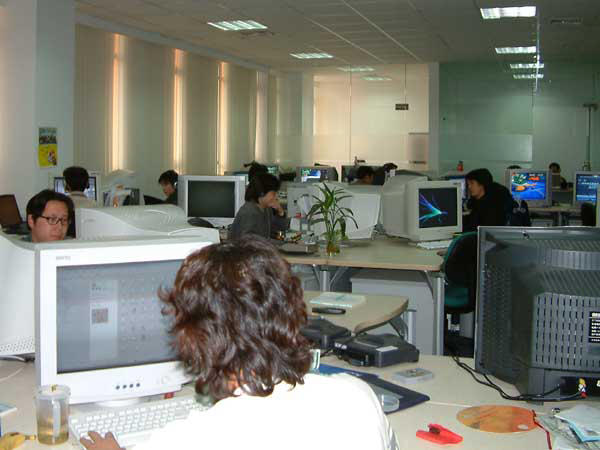
At the time, Dr. Yen spent half of his time abroad each year. When he was absent, iQue was under the management of vice president Ke Pengfe(柯鹏飞), who was also from Taiwan. Ke had a nice temper and the employees considered him an "nice old guy", very different from their view of Yen.
"Rebellious, introverted, hates being boasted about, does what he likes, and seldom nagges…" This wass how Yen would describe himself. Yet, employees of iQue viewed Yen quite differently.
For some, he was an idol, a Silicon Valley elite, a tech master, the spiritual leader of iQue. For some, he was like a gang leader, with a bunch of obedient minions. For some, he was a shrewd businessman, advertising himself as an action-taker with great ambitions for the Chinese gaming industry. For some, he was an eccentric, likes to act on his own, and showing views and actions quite abnormal.
There were also many rumors about this "Dr. Yen" circulating in iQue. For instance, he was said to have lived an abstemious life, eating only one apple and one set of nutrition supplements if he didn't have to invite guests to dinner. He was also said to be quite generous, as he donated all the money in his wallet to a beggar he passed by when he first came to China. He was said to be unfamiliar with customs in China, in that when one of his employees invited Yen to his wedding, he asked if a 20,000 Yuan red packet would be appropriate. He was said to be merciless when he criticized others, and remorseless when he fired someone. When he held meetings with people in the middle layer, he would usually scold people in the first half of the meeting , and would start telling relaxing jokes in the second half. He was said to have some special relationship with a senior official in the government, who supported iQue on registering the patent for the iQue Player. Therefore, even though iQue was funded by foreign companies, and iQue Player was a game console developed by an overseas team, there was no trouble having iQue Player approved for sale in Mainland China.
Nobody knows if these rumors were true or not, but there was one thing that everyone agreed on: Wei Yen had a very special relationship with Nintendo, and was one of the big figures that can actually "wrestle" with the company.
"When Dr. Yen was in charge, iQue had full and independent control over its own finances and sales, without worrying about Nintendo's regulations." said a former employee of iQue. Back then, iQue was only Nintendo's business partner, and was by no means an affiliation of Nintendo.
Dr. Yen didn't just want to distribute Nintendo products. He wanted to build his own iQue brand as well--that was Yen's original plan. This became obvious later with iQue replacing "Nintendo" with "iQue" on both the product name and packaging.
After over a year of preparation, iQue finally made its official debut on Sept 24th, 2003. Together with Nintendo, iQue made an announcement that it will release a Nintendo-64 based console, called the "iQue Player" (神游机), in Mainland China in mid October.
It was speculated that iQue, as Nintendo's agent in China, would probably bring in Nintendo's new console--the GameCube--to compete with Sony's PlayStation 2 in China. Surprisingly, iQue decided to bring in a console that was released 7 years ago, already out of production, and exactly one generation behind the PlayStation 2.
"The revamped edition of an old console, with localized versions of old video games, made up the first ever game console released in China by a Japanese company. It feels kind of sad as a game-loving fan in China. It's almost as if we are doomed to never legally enjoy the latest video games." Wrote an editor of a gaming site on the day the news came out.
Some gamers understood iQue's decision, yet more people questioned it. "Gamers in China won't pay for a console just because it is from a particular company. Although gamers in China don't have a lot of money, we have already fully enjoyed all kinds of top-notch games." A gamer Commented.
Two days later, the iQue Player was revealed on the Tokyo Game Show. Again, to everyone's surprise, this new Nintendo 64 console merged the console and controller into one, becoming somewhat similar to Sega Dreamcast's controller. The iQue Player's design was so bizarre that players were constantly fighting over whether the disclosed image of the game system was its console or its controller.
iQue Player games were also distributed in a new manner. The games were not sold on physical cartridges, but as digital downloads. Games were stored in a 64 Megabyte rewritable flash card called the "iQue Card" (神游卡). If a player wanted to buy new games, he or she would have to go to iQue-authorized game stores, purchase some "iQue Tickets" (神游票), use an in-store self-service kiosk called the "iQue Depot" (神游加油站) to write games into his or her iQue Card.
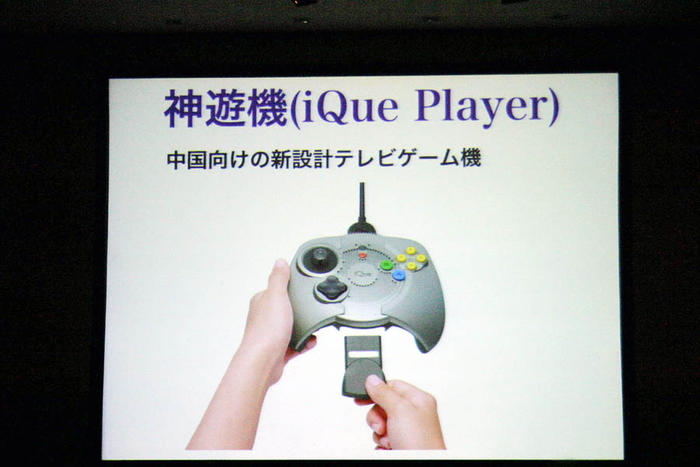
Why would Nintendo release such a unique console, with its unique game distribution manners, in Mainland China? Satoru Iwata, Nintendo's president, gave us 3 reasons:
Low income, underdeveloped logistics and the widespread of piracy.
The retail price of an iQue Player console was only 499 RMB, way cheaper than imported PlayStation 2, Xbox, and GameCube consoles, and even somewhat cheaper than an imported GameBoy Advance. By selling digital copies, costs of manufacture, packaging, transport and storage can be saved. Each iQue Player game only costed 48RMB, way cheaper than other genuine copies console games sold in China.
Both Iwata and Yen had expressed under various circumstances that, if the iQue Player should succeeds in Mainland China, Nintendo will introduce the iQue Player into other countries and regions with lower income.
However, the iQue Player became a commercial flop in China, and was therefore not introduced into other countries and regions. Eventually, it became one of the rare case where a console was sold only in Mainland China.
Price was not the only factor taken into account.
"When I was deciding on which console to introduce to the Chinese market, there were two aspects that I must consider. Firstly, the console that iQue develops must have some kind of compatibility with foreign game platforms. This would provide us the possibility to develop higher-end software, so we must keep this compatibility." Said Yen.
The Nintendo 64 was probably the gaming system that Yen was most familiar with, as this was where he started his cooperation with Nintendo. Since Yen's American team had participated in the development of two generations of Nintendo consoles, it wasn't too hard for them to take the Nintendo 64, add some more features, and modify it into a new console. In terms of software lineup, the iQue Player had hundreds of games from the entire Nintendo 64 game library as a backup, so there would be no trouble in building a solid library. Since Nintendo 64 never gained an official release in Mainland China, it would still be new to many audiences despite being behind the times.
"Secondly, there was something very important to me both in terms of development and distribution. That was the consequence of pirated software." said Yen.
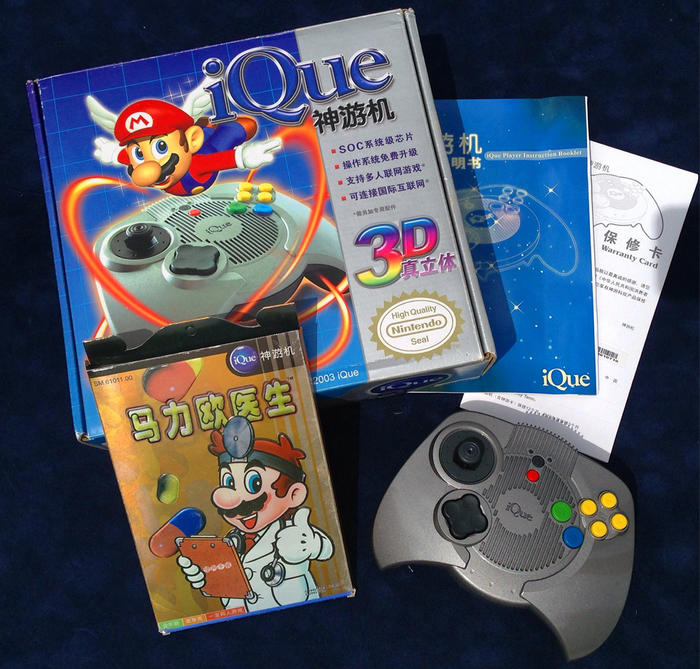
Piracy was the first issue every game company must tackle before they enter Mainland China. Dr. Yen further divided the issue into 3 parts. First, how to crack down on piracy. "This was the concern of the government, not mine." Second, how would piracy affect the operation of game companies? "This was not my primary concern either, as piracy happens everywhere on this planet, with only difference in severity."
According to Wei Yen, he was concerned the most with third part: "Harmful Extreme software" as a result of piracy. "If the console we introduced into China already had many harmful and extreme software overseas, they could enter the Chinese game market through piracy, and that would lead to consequences that I cannot shoulder. This was my major concern when it comes to what kind of console to be compatible with."
It was hard to say if Wei Yen said these to persuade the government, to target iQue Player's competitor, or they were his real thoughts. Regardless, iQue Player implemented strict anti-piracy measures, including unique digital signatures for every system, and games loaded from flash to RAM when executed. Also, due to the limited numbers of iQue Players released, iQue Player and its games were not hacked (until April 2018). There were no ROMS or emulators available. So if someone wanted to play any of the 14 offically Localized iQue Player games, such as The Legend of Zelda: Ocarina of Time and Paper Mario, they would still have to buy an iQue Player console andgenuine copies of the games (as of Dec, 31st, 2016, the purchase service iQue Player games have been terminated).
A dedicated hardware and software system provided iQue Player with good anti-piracy measures and makd it easier for the government to control the released content. From a similar perspective, it can also be understood why the Chinese edition of PlayStation 2 implemented a strict two-way region lock(as in Chinese hardware incompatible with import software, and vice versa).
In November 2003, the iQue Player debuted in Shanghai, becoming the first video game console officially released in Mainland China after the the console ban issued by the government in 2000.
In the same month, Sony held a press conference in Beijing and disclosed information about the Chinese edition of PlayStation 2. This console, model number SPH50009, was sold at a price of 1988 RMB, 4 times as much as the iQue Player. Its games costed 169RMB, 3 times as an iQue Player title. The way to PlayStation 2's official release in China wasn't very smooth. It suffered a sudden delay and was released quietly in early 2004.
Technically, game consoles were still illegal in Mainland China, so Sony named its PlayStation 2 officially as a "Computer Entertainment System". iQue, however, was not shy about using the term "video game". As a "domestic game console" with independent intellectual property rights, the iQue Player was official named "3-Dimensional Interactive Video Game System".
After the iQue Player's release, Wei Yen frequently brought up a "Math Problem" when he was interviewed. The problem was that 95% of the Chinese popularion considered video games as a great scourge, while the rest 5% were super gamers keeping up with the video game community of the world. The jarring differences between the two groups were impossible to reconcile. Wei Yen said that iQue’s mission was to try to provide a solution to this almost impossible Math Problem.
Wei Yen's words touched the heart of many gamers. Despite having many questions, they have deep faith in the slogan written in Nintendo and iQue's joint announcement: "China's video game industry soars from today".
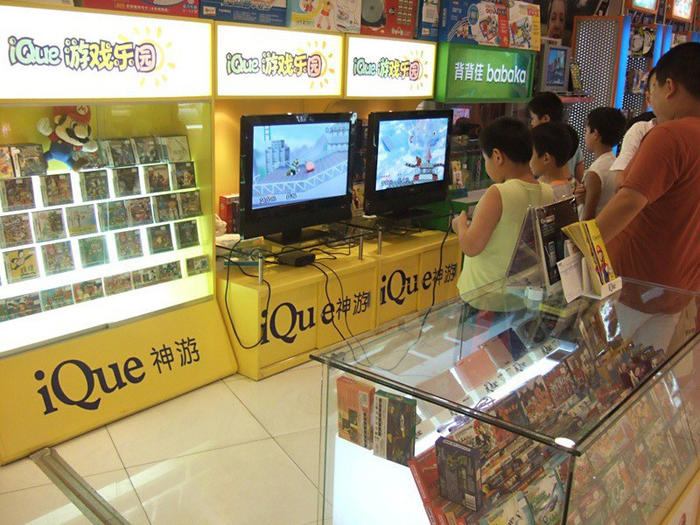
How can iQue bridge the gap between the 95% and the 5%? Wei Yen's solution was "Family gaming".
Similar to the PlayStation 2 in China, the iQue Player targeted the public instead of the core player. The difference is that PlayStation 2 targeted users with a certain level of income while iQue Player emphasized family gaming.
"Children do not have buying purcahsing themselves. It's out of question that our games will attract them. The key is whether we can win trust from the parents." Said iQue's former employee. This is why Wei Yen repeatedly emphasized "Healthy gaming".
For instance, when Wei Yen was asked why the iQue Player had the controller built into the console, he explained that the reason was not to cut costs, but "the small, handy design of the iQue Player would be easy for parents to stow and control. If the child couldn't control themself, the parents could still easily restrain them, developing their own self-control in the long run."
"Family fun" was another concept heavily advertised iQue, but it wasn’t successful. The iQue Player was designed for only one player, so if players wanted to play a multiplayer game, they would have to buy a "Multiplayer Box" that was similar to a router and a "Multiplayer Controller" for every extra player. The "Family Package"--a multiplayer box bundled with a multiplayer controller, excluding the iQue Player, costed 398 RMB.
"In retrospect, I think that console gaming should attract core players first, and attract casual players through existing core players. This is because console gaming has a high bar and a long learning curve. Smartphone games, on the other hand, are able to attract core players from existing casual players, or they can even give up the core player's market entirely." Said iQue’s former employee.
There basis for casual players were vast, but it costs more to turn them into actual customers, both in terms of marketing and product distribution.
There were no import equivalents of the iQue Player, so there were no conflict of profit between the imports and iQue products. So from the very start, iQue decided to cooperate with import sellers instead of boycotting them. Game stores and electronics malls were all over the country, selling imports and bootlegs. While these shops were hard to regulate, they costed less to cooperate, and were more professional in selling video game products.
However, things didn't go smoothly as planned. After the iQue Player's release, iQue set up retailers in seven cities around the country. Aside from Shanghai and Guangzhou, most cities had only up to one or two iQue retailers.
One cause for the lack of retailers is the little room for profit. iQue Player units were sold on a commission basis so there were no risks of overstock. However, retailers didn't have a lot of room for profits either. A game store in Shanghai could only earn 20 RMB from selling an iQue Player console and 3 RMB for selling a game. That was a lot less compared to selling imports.
The other cause was the "iQue Depot". According to Wei Yen, "The 'iQue Depot' was something I forced myself to come up with when I was having tea in my living room, staring at the wall." He hoped to replace the distribution of physical cartridges with "official flashcarts", so that both the risks of piracy and the cost of distribution could be lowered.
However, this led to greater costs and difficulty in setting up new retailers. The iQue Depot was essentially a computer terminal with a camera, a monitor, flashing equipment and card swiping equipment, and each kiosk unit was said to have a cost of around 8,500 RMB. Many shop owners who were still on the fence do not want their shop spaces occupied by the iQue Depot. To make things worse, the iQue Depot was not distributed for free. Retailers must pay a deposit of 15,000 RMB for one of these iQue Depots, and the money is only refunded upon returning the kiosk.
For a very long time, many cities, including Beijing and Shenzhen, didn't have a single iQue Depot despite having retailers for the iQue Player.
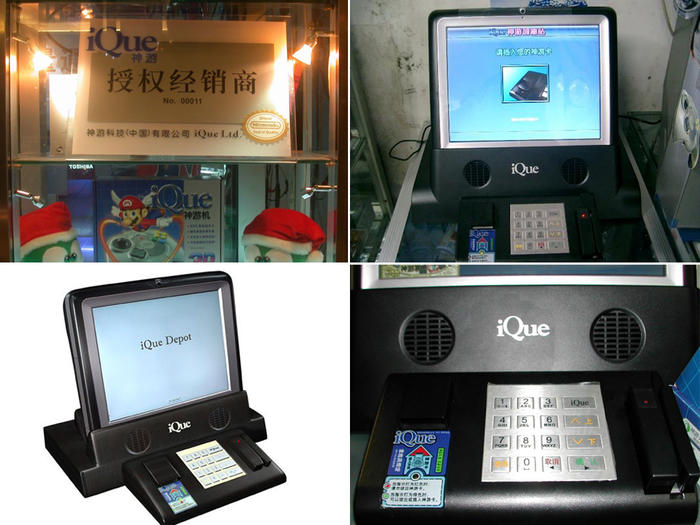
The iQue Player was sold as a bundle. Each console came with a pre-installed copy of Dr. Mario 64 and one iQue Ticket worthed 48 RMB. Each set was sold at a price of 598 RMB. Players without access to an iQue Depot, had to ship their iQue Card back to iQue's HQ if they were to buy new games.
In the year 2003, online games were already on the rise, and broadband internet connection had started to become household. As a result, it was quite bothersome having to flash new games at retailers, and it was even more unbearable to send an iQue Card to a city hundreds of kilometers away just to install new games.
Finally, in October 2004, iQue released the iQue@Home (神游在线) service, allowing players to connect their iQue Player to a personal computer via a USB cable. They could now finally purchase and download games by redeeming the code on an iQue ticket, saved from the trouble of going to retailers.
To some extent, the iQue Player's digital distribution method was similar to prepaid cards for online games. Back in those days, buying prepaid cards and downloading games from the internet was still very pioneering for the console game market. The Wii Shop Channel and Nintendo Points Card in the future were the succeesors of the iQue Player's idea.
The truth was, Wei Yen had a greater plan for iQue@Home, extending beyond the realm of the iQue Player itself. His goal was to extend iQue@Home into a large platform for digital game purchases, something like the Nintendo version of Steam, gathering games from different Nintendo consoles in one place, including the future iQue GBA, iQue DS, and even the cancelled iQue GameCube and iQue Wii. Unfortunately, only a tiny portion of this blueprint was made into reality.
The iQue Depot caused iQue to lose large sums of money due to low usage. It was said that these overstocked iQue Depots were sold to their own employees at a clearance price of only 300 RMB each. iQue@Home, on the other hand, was still in business. Players could still buy iQue Player games with iQue Tickets online, until the end of service on Dec 31st, 2016.
Wei Yen once said in an inside meeting that iQue's goal was to sell over one million iQue Player units. By then, iQue's market value would have exceeded one billion.
"At the time, it sounded like an encouragement for us, but now in retrospect, I finally knew what it was. It was the goal for the capital operation." said iQue's former employee.
However, reality fell short far behind expectation. 5,000 iQue Players were manufactured for the launch batch, two or three more batches later, and the total number of sales landed between 8,000 to 12,000 units. Most of these units were exported to neighboring countries like Russia, where the iQue Player was well received in regions with low income.
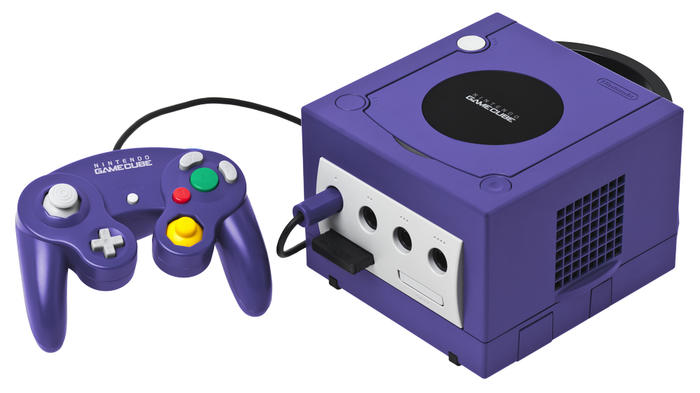
The iQue Player sold so poorly that the revenue couldn't cover the costs. As a result, the iQue Box, still under development, was cancelled.
The iQue Box was a modified version of the Nintendo GameCube, exactly what the iQue Player was to the Nintendo 64. The iQue Box was already in development when the iQue Player was released. It was based on the Nintendo GameCube hardware, with enhancements on certain processing power. When the project was cancelled, iQue Box was still in the testing phase, with exterior design and other industrial designs yet to be begin.
Similar to the iQue Player, the iQue Box would have given up physical media such as disks and cartridges, and games would be purchased and downloaded from the internet.
"Had the iQue Player been a success, Nintendo would continue their experiment in China down this path, with all Chinese consoles released in this format, and eventually, pushing this standard to Nintendo consoles around the world." said iQue’s former employee.
Early next year (2017), Nintendo will release the new console that is now codenamed "NX". It was rumored that digital media would no longer be used and only digital downloads are available(which is false as Nintendo Switch still uses cartridges, but true for full-digital editions for the PS5 and Xbox Series X). Nintendo had put this into practice with iQue Player, iQue Box, and iQue@Home more than a decade ago.
The iQue GBA became the turning point for the company as the iQue Player went into a quagmire.
In June 2004, iQue released its own version of the GameBoy Advance (小神游GBA), bundled with localized versions of Super Mario Advance and Wario Land 4. Four months later, iQue released its GBA SP (小神游SP)at a price of 688 RMB. Both models have identical external and internal structures with their international counterparts, with the only exception being the nameplate "Nintendo" replaced with "iQue".
At the end of the year, iQue released the "Chinese Dragon" (中国龙) GBA SP, a limited edition designed for the the Chinese market, alongside the iQue GBA SP release. iQue also held various activities like the "iQue GBA SP design contests"(小神游SP设计大赛) and "iQue lovers' show"(iQue情侣秀). For the first time, gamers in China felt the sincerity from this company.
Moderately priced, portable, easy to hide, and playable anywhere--these features made the iQue GBA SP very suitable for iQue's target audience--the students. Back then, imported GBA and GBA SP models were mostly available as refurbished. A brand new imported GBA series handheld costed no different compared to their iQue counterparts, which also came with warranty coverage. Even better, iQue's GameBoy Advance series did not implment region locking or anti-piracy mechanisms, plays imported Japanese and American cartridges, as well as bootlegs and flashcarts. This was an premise of many Chinese gamer before they choose to buy the official Chinese edition, in a time when localized games were scarce.
"It was just that we were unable to implement region locking and anti-piracy mechanisms for the GBA on a technical level." Said iQue’s former employee," However, we were able to forsee its commercial success, so we prepared a much greater number number of units than for the iQue Player."
iQue's GBA series became a hit after its release, quickly ending the dominant position of imports in the handheld market. In 2005, the sales of iQue GBA series exceeded 200,000 units, with iQue's revenue reaching 100 Million for the very first time. In June 2005, iQue made an official announcement: "After the release of iQue GBA and iQue GBA SP, similar imports have vanished from the stores. The 'imports' people occasionally see are all refurbished units."
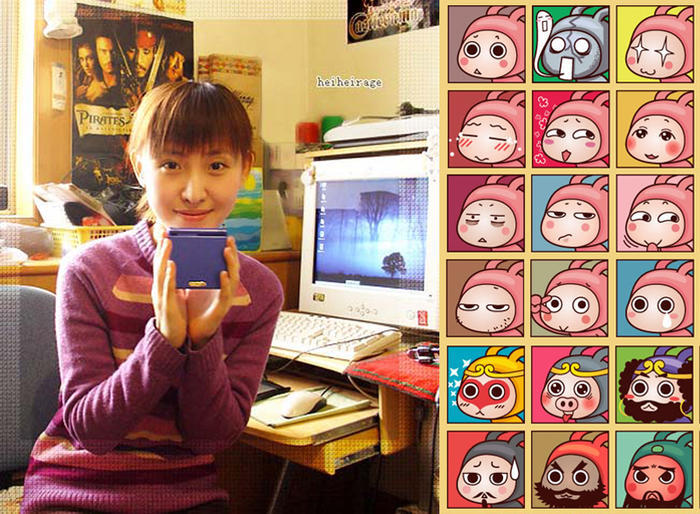
It was also during this period when iQue shifted its market positioning.
Initially, iQue embraced the idea of "all ages"--games that "are not limited to a certain age group and are suitable for healthy family fun". However, after the release of the iQue GBA, Wei Yen hoped to bring in the marketing pattern of BBK Electronics, so he "parachuted" a former marketing manager from BBK right into the marketing department. Under his command, iQue started to copy what BBK had been doing with learning machines and language repeaters, and changed its target audience to young children completely.
"Back then, everyone was busily working towards the young audience strategy. The engineering department was told to develop games for the young, the marketing department was told to repackage products based on a younger audience and to advertise on media for young children, and the sales department was told to sell products under the 'toys' category." Said iQue’s former employee.
Although iQue invested a lot of resources, the results were unsatisfactory. After a few months, Wei Yen dismissed the marketing manager from BBK. However, some ideas from BBK remained, including the development of educational software.
"Sometimes, when an organization shifts its positioning, it may simply be the result of preferential decision from a key person." Said iQue's former employee.
The total sales of the iQue GBA series exceed 500,000 units, with 70% of them sold through import game stores. Since iQue GBAs were manufactured within China, iQue could provide these stores more room for profit even when the price was set to lower than imports.
However, when the iQue DS was released, these import distributors turned into a impediment.
After the commercial success of the iQue GBA, the plan to introduce the Nintendo DS was quickly put on the agenda. At the end of 2004, not long before Nintendo DS's launch in Japan, various figures, including Satoru Iwata (Nintendo's president), Genyo Takeda (General Manager of Nintendo's Integrated Research & Development Division and Tsunekazu Ishihara (President of the Pokémon Company) paid a visit to iQue. This wass the first time ever for iQue to receive such distinguished guests.
7 months later, the iQue DS was released in China under the name "Dual Screen Multimedia Interactive System". At the time, DS flashcarts were yet to become common. iQue DS played imported DS games, but imported consoles could not play iQue DS titles. Plus, the iQue DS had warranty coverage, so it had an obvious advantage over its import counterpart.
The iQue DS had two editions at launch: The standard edition and the deluxe edition. The standards edition, sold at a price similar to imports, came with no games, was distributed to import game stores. The deluxe edition, bundled with the DS game Polarium and the GBA game WarioWare, Inc.: Mega Microgames!, about 400 to 500 RMB more expensive than the standard edition, and was distributed to department stores.
"The deluxe vedition, to be honest, was just a means to increase room for profit throught software bundling, since it costed more to sell products in a department store and the system itself provides too little room for profit." Said iQue's former employee.
Around one month after the release, many gamers found that they could only find expensive deluxe editons, and that standard editions were no where to be found. Many of those who planned to buy the official Chinese edition turned to imports in the end.
"On the lack of standard editions, I recall that these import game stores were unwilling to stock our products. Truly, we didn't prepare a large number of standard editions since we estimated that there would not be a large demand." Said iQue's former employee. Since the iQue DS was released not too long after its foreign counterparts, many import game stores decided not to stock any iQue DS units so as to sell off their backlog of import units faster.
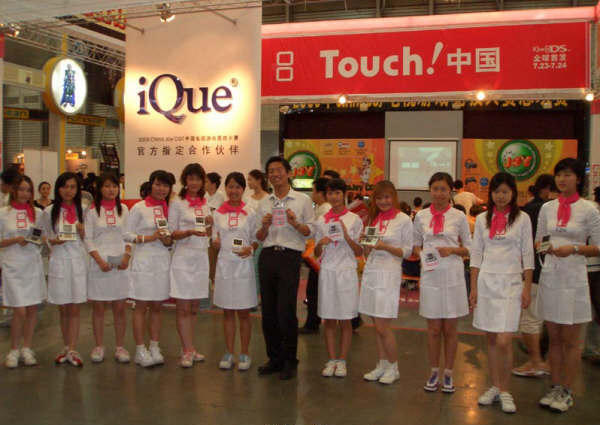
The sales of iQue DS were mediocre. It was only after the iQue DS Lite's release one year later in June 2006 that sales went up again. One of the reasons was that DS flashcarts had become perfect and is compatible with the iQue DS Lite. Another reason was that iQue emphasized more on advertising its products on public media, and the proportion of non-gamer owners had gone up.
Before the release of the iQue DS Lite, Satoru Iwata went on another visit to Suzhou. He went to see the iQue DS Lite launch event in Shanghai, accompanied by Wei Yen. This was the last time Iwata ever came to visit iQue.
The sales of iQue DS series exceeded 300,000 units, with iQue's revenue reaching 400 Million. iQue reached its climax in the year 2007. "During the years we sold GBA and DS units, our annual revenue could always exceed 100 Million. It was already a huge success under the situations back then." Said iQue's former employee.
iQue was one typical example of a company that made a fortune in silence. However, iQue's revenue fall short compared todomestic online game companies. In the same year, The9 earned one Billion just through World of Warcraft, and Shanda, NetEase and Giant all have revenues over 1.5 Billion.
With the iQue Player in 2003, the iQue GBA series in 2004, the iQue DS in 2005 and iQue DS Lite in 2006, iQue has been introducing Nintendo consoles into China at the pace of one new console per year, and has almost fulfilled its promise of keeping up with the rest of the world. The iQue DS Lite was released only 3 months after its release in Japan, and up till this day, is the game console with its Chinese launch date closest to the international launch date among all the consoles officially released in China. The only exception was the iQue Game Boy Micro.
However, at the same time, iQue was slowing down its pace releasing new games gradually, until finally, stopped releasing games altogether.
On the back of iQue Player's package, there were screenshots of more than twenty games, and a flasing line of large text: "Hundreds of games to come"
"While those 48 RMB games were of the past generation, core players will still support them, because they were buying nostalgia and hope." Said iQue's former employee.
The five launch titles of the iQue Player were selected by Nintendo. After that, iQue had the rights to choose which games to release for the console. Initially, iQue planned to release one localized game per month, but they soon found out that it was mission impossible.
One of the issues was the long wait for government approval. A completed game takes about three months before it was officially approved, and one to two months of re-approval on top if anything in the game needed to change. "What was even more inconceivable was that the officials in charge had been mostly dealing with audiovisual products, and barely knew anything about video game software. As a result, game companies had to spend plenty of time and efforts in 'training' them."
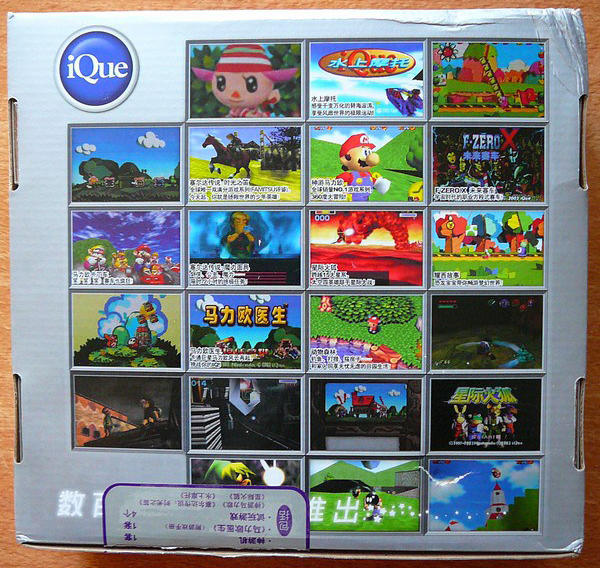
In 2004, iQue sent three games in for government approval simultaneously. They were Paper Mario, Sin and Punishment and the Legend of Zelda: Majora's Mask. Among them, Sin and Punishment wasn't a first party title and was more hardcore compared to prior iQue Player releases.
"There were debates within the company whether we should pick this game or not." Said iQue"s former employee. The advocates argued that this game would attract core players, and the objectors claimed that this game wass a bit too 'violent" and didn't fit well with iQue"s "All Ages" image. Some also argued that it might not be approved by the censor.
Contrary to their prediction, Sin and Punishment passed the approval very smoothly and was released alongside Paper Mario. The Legend of Zelda: Majora's Mask, on the other hand, didn't get to the final release despite having gotten its software registration certificate.
There were rumors that the Legend of Zelda: Majora's Mask was rejected by the censor because it had some "inappropriate content". Another possible explanation was that the technical staff encountered a bug with the battery save that could not be resolved when they ported the game to the iQue Player, and the bug remained unresolved until iQue Player's final game, Animal Crossing.
Between 2003 and 2006, iQue released a total number of 14 titles, five of which as launch titles, five of which released wthinin one year, and the remaining four released in two year's time. Although the iQue Player had a small library, the games were acclaimed for their high-quality localization. Features such as Star Fox 64's full Mandarin dub and Animal Crossing's Chinese traditional festivals left a deep impression on gamers.
Government censorship was not the only cause for the great difficulty of releasing new games.
After the release of the iQue GBA, iQue began to produce physical cartridges. The distribution costs of cartridges were higher with the costs in each step--such as manufacture, logistics, distribution, and stocking. An iQue GBA game was sold at 200 RMB, and an iQue DS game was sold at 280 RMB. Once the console was cracked, these genuine games could barely sell under the combined impact of bootlegs and flashcarts, and could sell as console bundles.
In June 2004, pirates in China went into action soon after the iQue GBA release. The two launch GBA titles, Wario Land 4 and Super Mario Advance, were cracked and uploaded onto the internet in just a few days.
In the following month, iQue, together with authorized retailers in Nanjing and other cities, started a boycott against flashcarts. iQue also sent warning letters to some emulator sites in China to have them stop offering ROM downloads, and wrote an open letter calling up gamers to support genuine copies of the games.
iQue stopped releasing Chinese games for the next six months.
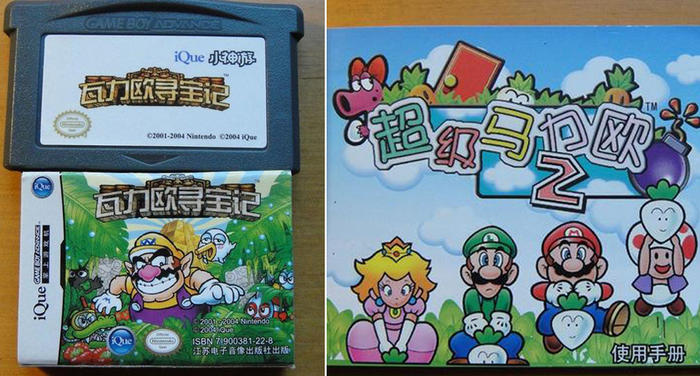
The 19th issue of the Videogame Software Magazine in 2004 once published a news article about "The Suspension iQue GBA Game Localization":
Alongside approving the release of iQue GBA SP for the Chinese market, Nintendo has also asked iQue not to localize any more GBA games. Since GBA software do not have effective anti-piracy measures, all the localized software were cracked and released publicly on day one, without exceptions. This has directly affected the sales of genuine copies in China. After taking advice from Nintendo and taking into consideration the current situation of the market, iQue has also decided not to localize any new GBA titles. The company will stop the release of localized GBA game software.
iQue soon clarified that they has not stopped localizing new games, but rather suspended their release. "This is a temporary act before effective copyright protection procedures are put into use." What they meant was that games were still being localized, but they would only be released if the piracy issue has been resolved.
For iQue, piracy was like a dual-edged sword. It boosted the sales of hardware, but destroyed the market for software. Hardware has become the main source of income for iQue starting with iQue GBA. However, since hardware sales will eventually reach satuation, iQue wouldn't be able to make a difference if games didn't sell.
"As gamers, I think we should support iQue and their localized games more. Game companies will only pay attention to our market if genuine copies sell well here, and we won't have to rely on piracy and fan-translation as the only channel to experience good games." This was the hope of a Nintendo fan.
However, the hope of the average gamer was more realistic: Buy a fairly priced, warranty covered official Chinese console, and pirate the games.
In 2005, iQue drew up an internal list of GBA games to localize. The list had more than 30 games titles, many of which were masterpiece from first and third parties. However, three years later, only less than a quarter of them were released into the market. "When I worked on localization at iQue, I almost felt like I was slacking off like a senior officer in a state-owned enterprise. When I entered the company in 2005, I had barely any work to do, and my first localization project only started two months after. A colleague of mine who joined iQue at the same time didn't get to sit through a localization project from start to finish throughout his entire career." Said iQue’s former employee.
Weak control over project progress and bad coordination between departments was one of the reasons why game localization went so slowly. Another greater issue was the lack of trust from Japanese companies.
"The Japanese didn't give us authorization, so we have to translate first, and have the commerce department to negotiate with the Japanese for the licence, which pretty much always fails. As a result, when we started our translation, we had no source code to work with, so we were basically translating games using the same tools and skills from a fan translation group." Said iQue's former employee. "暗黑破坏熊(Dark Destruction Bear)", the leader of the fan translation group "熊组(Bear Group)", was once hired by iQue, nicknamed by iQue employees as "offering amnesty and enlistment to rebels".
"Let me tell you a true story. One time, we got the source code for DK: King of Swing from negotiation, and everyone was all very excited. However, when we got to the actual code, we found that it was written in assembly language, with only a few extra lines of comments compared to machine code. Some people thought that the Japanese were so awesome that they actually wrote the program with assembly language. Some thought that they were cunning and were taking precautions against us on purpose, so they only gave us the version with assembly code and comments." Said iQue's former employee."
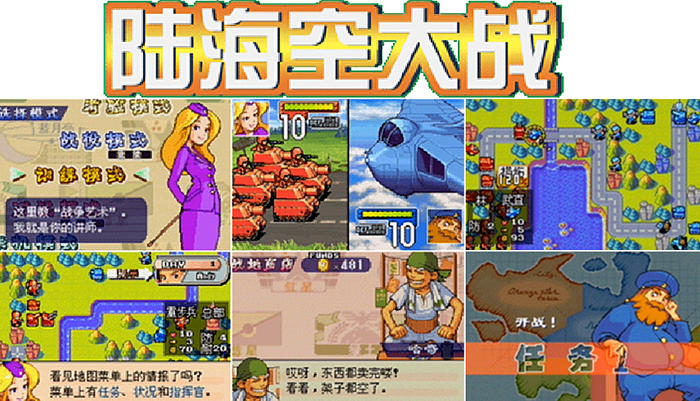
Most of the companies that refused to authorize or provide technical support were second or third party developers. One of those companies was Game Freak, the developer of the Pokémon series, who refused to cooperate with iQue in any form.
"These companies were worried about the piracy issue, so it was really hard to persuade them into giving us authorization for the Chinese localization. However, that wasn't an issue with first party titles." Said iQue's former employee.
As of 2008, iQue has finished the localization of over 20 GBA games, including various titles of the Fire Emblem series and the Advance Wars series, Pokémon Ruby/Sapphire, Pokémon Pinball, Golden Sun, Shiren Monsters Netsal, Mario & Luigi: Superstar Saga, Mario vs. Donkey Kong, The Legend of Zelda: The Minish Cap, Kirby: Nightmare in Dream Land, Donkey Kong Country, etc. A dozen more titles, including The Legend of Zelda: A Link to the Past and Four Swords, were near completion. However, only eight of these games were released into the market, and the rest only remained as a few copies of internal test cartridges.
"We didn't release the game we have finished localizing out of the fear of piracy." "We couldn't release the games because we couldn't negotiate the Japanese companies into giving us authorization." The two explanations were a cause and effect relationship.
To avoid the fate of the two iQue GBA launch titles, which got cracked at launch and only increased the costs, iQue decided to find another way.
"These localized titles were planned for release on the Netard. They would be available as digital downloads so as to migitate the piracy issues."
The Net Card was another piece of hardware Dr. Yen had planned for the Chinese market. It went through 4 years of development before it was eventually cancelled."
Shortly after the release of the iQue GBA in 2004, iQue launched development of the NetCard, as a collaboration between Dr. Yen's American company and Chen Yongzhi's iQue team.
The NetCard was a flashcart with a CPU, something like an upgraded version of the iQue Card, and was able to connect to the internet. Players would be able to download games to their NetCards by inserting it into their GBA consoles or the slot-2 of their DS consoles, and connecting it to the internet through Wi-Fi or the computer.
The NetCard were to become an important complement to the iQue@Home service. With the NetCard, iQue can distribute GBA and DS games in a similar manner as they did with the iQue iQue Player --selling digital copies, somewhat reducing the risks of piracy and distribution costs.
Another important feature of the NetCard was online multiplayer. For this feature, iQue has developed a handful of original online multiplayer GBA games, including Winner, Sheng Ji (both are popular poker games in China), and Chinese chess. A 2-dimensional iQue Lobby was also created where players could chat, listen to music and play games in different rooms.
iQue also planned to add online multiplayer features for existing first and third party titles, including Mario Kart and Pokémon. Some of the games already had their online features implemented. In the description for iQue's Advance Wars, a line read: "By connecting to the internet, you can battle online with Advance Wars fans from different regions. So if you were having difficulties finding an opponent, you can finally show off your commanding skills on the internet."
In order to run these online services, including online shops and online multiplayer, Yen registered and founded a domestically-funded company, Shenqu Digital, in June 2005, with a registered capital of 10 Million RMB.
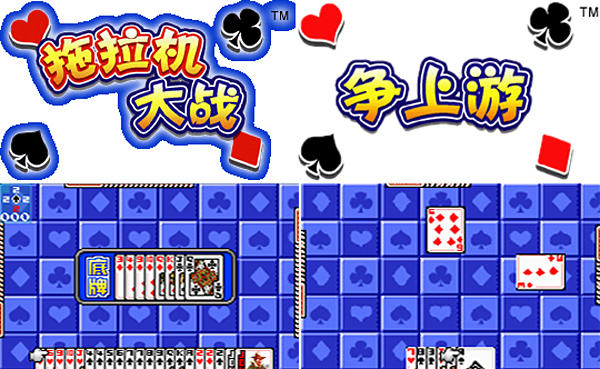
The NetCard had gone through 4 years of development and still didn't made its way to the public. Some believed that it was caused by internet lags and other technical issues that couldn’t be resolved. iQue had run internal tests for the online multiplayer of Mario Kart, and the frame drop was terrible. Some people also questioned its feasibility, implying that if players had to bother with transmitting games onto the tiny screen of the GBA, they might as well play those games directly on a computer instead. Some people also believed that the NetCard project wasn’t abandoned entirely, and certain technologies had been applied on other products of Nintendo.
"There was a rumor within the company that the online features for the Nintendo Wii was updated from the technology for the NetCard." said iQue's former employee, "Some of us believed that many of our failed projects had turned into actual products through the collaboration of Yen's other companies with Nintendo. However, I couldn't validate if they were truths or wishes."
In 2008, the NetCard was officially cancelled as Yen left iQue. Over twenty localized GBA games were sealed away, and the greater plans for the iQue@Home service ended where it was.
In 2005, the iQue GBA series became a best-seller, during which iQue DS, iQue Game Boy Micro, and iQue Play Yan released one after another. iQue held a internal celebration party, where Dr. Yen stated that iQue would set off once again.
It was also in the exact same year that where a large number of people left the company for the first time, including Weng Yingming and Chen Yongzhi. Around ten people in the development team left the iQue one after another.
"Chen wanted to make his own games and was a man with great ambitions. Tech professionals have a short period of freshness: If they couldn't keep their technical skills up to date, they would fall behind very quickly, so the rate of loss for the developers was the greatest." Said iQue's former employee.
"Most projects in iQue were ports and localizations: Original projects were rare, and the few that existed were suspended halfway due to various reasons. "Many highly skilled personnel left the company after being let down a few times."
In 2006, iQue reorganized its departments and separated the Game Engineering Department into Engineering Department No.1 and Engineering Department No.2. ED1 had around 40 people and was in charge of porting, localizing and testing games, as well as developing online multiplayer board games. ED2 had around 20 people, and was in charge of iQue's original projects.
Li Lanyun, the chief planner of various Chinese games including Jianxiaqingyuan and the founder of Aojoy software, an educational game developer in Zhuhai, was in charge of ED2. Dr. Yen hired him into iQue so as to enlarge the market for educational software, trying to create another “BBK Electronics”.
The project ED2 worked on was a DS software titled "神游社交英语开口通(iQue Oral English for Social Communication)". Four years and around 10 Million Yuan were put into the project, yet the game never made it into the market.
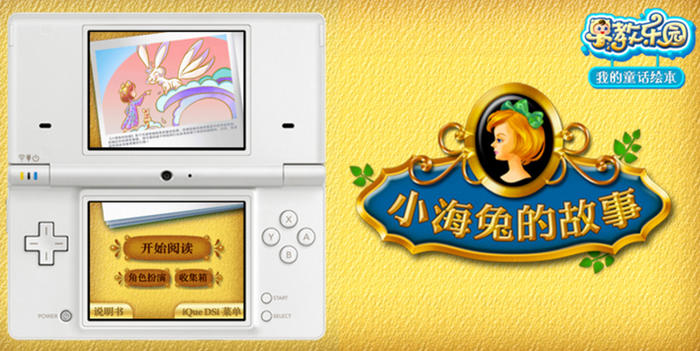
"We did wonder about this before: Why did games like Brainage sell well in other countries but failed to do well in China? This is probably due to iQue's target audience. If we targeted the traditional gamers, they would find no need in buying educational minigames as they were already used to pirating and playing even masterpiece for free on flashcarts. If we targeted the general audience, then they would consider those as mere games with no direct impact on their grades, and thus pass them off as worthless. Also, the game console is a different platform compared to computers: They are a type of toys rather than a type of tools. It was hard to find us a target audience because most buy game consoles just to play games." Said iQue’s former employee.
"iQue’s Oral English for Social Interactions" made use of Nintendo DS functionalities like the touchscreen, the dual-screen display, and the microphone. The user would learn in an interactive scenario, with gaming elements such as role playing. During the development, iQue spent millions of yuan purchasing third-party contents, such English textbooks, translation software "Jinshanciba", Hanvon’s handwriting input software, recordings of native speakers and Nintendo's listen & write technology. "Nintendo was sincerely supportive of iQue's original projects. If you needed any of Nintendo's technology, you only needed their nod: no patent fee required." Said iQue's former employee. Nintendo's dev kits, the "Blue box", "Red Box" and "White Box", as well as all kinds of middleware required for game development, could be used by iQue for free as long as Nintendo gave permission.
The development for "iQue's Oral English for Social Interactions" was finished in 2009, and was sent to Mario Club for testing. The game then passed Nintendo's own approval after various edits. By then, Dr. Yen had already left iQue and the company was under Nintendo's control. "The name of iQue's software publisher, 'Jiangsu Phoenix Media Publishing', was already added into the game interface, and a string of zeroes was added as the ISBN placeholder. Had we got the nod from Japan, we would be able to send the game in for government approval, yet, Nintendo did not make that call." Said iQue's former employee. His guess for the reason why Nintendo cancelled the approval at the last minute was due to the concerns of the physical cartridge cost: A poor sale would have lead to a greater loss.
"iQue's Oral English for Social Interactions" was planned to be pre-instakked in the NetCard and bundled with the iQue DS at an MSRP of 1800 RMB. As the NetCard project got scrapped, this software, a project that took 4 years and 10 Million Yuans, never made it to release. Up till this day, the only original software published by iQue was a free iQue DSiWare titled "The Sea-Hare", an interactive ebook launched in 2011. The software was based on the Grimm's fairy tale story of the same name and was also developed by ED2. iQue planned to expand the ebook into a series of books for early education, but the project was discontinued due to very small number of downloads.
"We did not collborate with third-parties, never because we didn't want to, nor because we did it on purpose: this was never the case. Let me tell you the true reason. The true reason was that we haven't trained enough professionals in the company for third-party collaboration. We not only have to train our own employees, but we also hoped to train those of others... It would very foolish not to do that in terms of running a business."
In 2003, soon after the release of the iQue Player, Dr. Yen implied that iQue would develop collaboration with domestic third parties. However, iQue didn't start to get in touch with Chinese third parties until 2006. "Since it was very hard to get authorizations from foreign third-party developers, we wanted to develop third-parties in China." Said iQue's former employee. "We set up a full set of rules, contacted some game developers in China, and the conversation with interested local developers went rather well. However, we couldn't yield any results thanks to too much concern from Japan."
A game company from Dalian wanted to collaborate with iQue, purchase DS dev kits, and develop iQue DS games for the Chinese market. iQue reported it to Nintendo but never heard anything back. One year later, the company received authorization and DS dev kits from Nintendo UK, and the game went into the European market upon completion. "The conservativeness of the Japanese prevented us from developing a solution for the local industry." Said iQue's former employee.
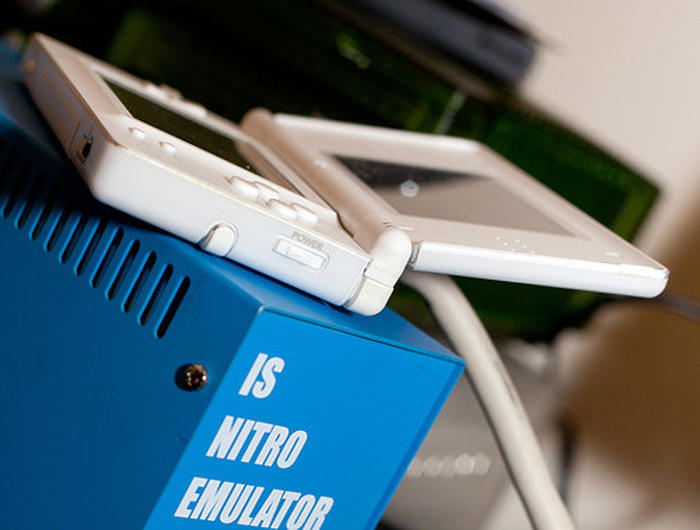
With third party collaboration failing to work out, and lacking ideas on original projects, outsourced projects gradually occupied a larger portion of iQue's workload, and iQue's way of management subtly changed. "iQue was very much like an American company when it started: Dr. Yen often came to share and chat with the average employee and employees could run freely between departments. As time went by, iQue became more like a Japanese company, with clearer hierarchy and more refined rules. This was beneficial for management, but creativity and autonomy gradually disappeared. Sure, I disliked the change, but I didn't think that it was wrong for the company--if iQue turned into a contractor for outsource projects, then rules and control are of greatest importance." Said iQue's former employee.
Many iQue employees also complained about the lack of a fair and reasonable incentive. "The managers in the middle coalesced and cared nothing about the normal employees. Those who earned 30,000 - 40,000 RMB monthly always gave themselves the highest ratings and big raises. The result was that those with a high income earned more, and those with a low income never had large raises."
With the lack of goals, prospects and accomplishments, the company gradually lost its vitality and iQue became a place for the seniors to slack off. "iQue back then gave me a feel of fragmentation, as everyone in the company was uninterested in their work. It's just that some were working harder and some were just dawdling and waiting for the benefits to come to them." Said iQue's former employee.
2008 was iQue's turning point from rise to fall. The financial crisis that happened this year led to a sharp devaluation of the South Korean Won. Lots of Korean Wiis were imported into China and impacted the game market. It was in this year when the iQue Wii, which iQue had been preparing for almost two years, died before its release.
In 2004, iQue's renovated its workspace, with the corner near the entrance modified into a "Game Experience Area": A lampstand with circular frosted glass with an iQue Player place on the top, available for employees to play at their leisure. However, this region was rarely used, and was more used as a demonstration area when government officials or Nintendo executives came to visit. However, as the iQue Player got replaced by a Wii in 2006, many employees who never play video games previously also came to gather in this area. "From this change, we could see that the Nintendo Wii was a successful product targeting the casual public audience." Said iQue's former employee.
Back then, iQue had high hopes for the prospect of the Wii in Mainland China. Soon after the Wii's Japanese release in December 2006, iQue started preparing for introducing the iQue Wii. The Gaming Engineering Department was in charge of localizing Wii contents and the Network Engineering Department was in charge of setting up the Wii's server in Mainland China. At the end of the year, iQue made an official announcement: "What we can tell everyone is that we will definitely release the iQue Wii. However, we couldn't disclose the exact date of release yet, as it depends on the cooperation between various parties."
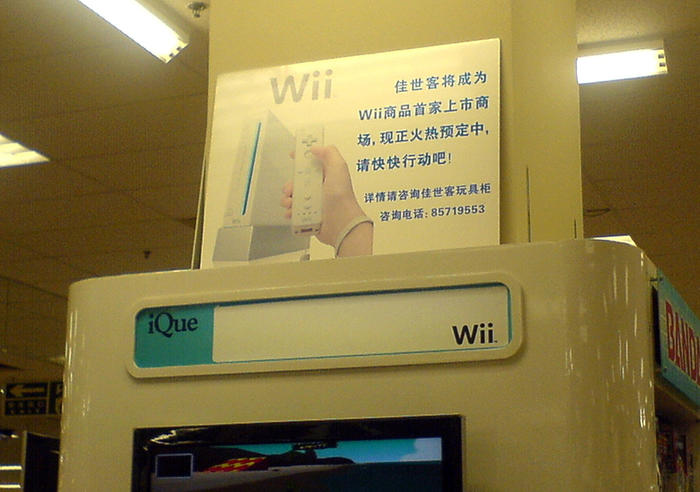
However, the iQue Wii fell into dead silence in the following year. It was not until the Wii got a 3C certification in Mainland China under the name "iQue Multimedia Interactive Player" in December 2007 that iQue again made a promise: "The Chinese Simplified version of the iQue Wii will definitely release in China sometime next year. In terms of the game lineup, we will not only provide global hits, but also provide original games from domestic companies, and we will also set up an official website in Chinese." Back then, it was rumored that the release date of the iQue Wii was changed to May 2008, with Wii Sports and Wii Play fully localized, and both Super Mario Galaxy and Mario and Sonic at the Olympic Games more than halfway done. However, 6 months later, the Wii was not released in May 2008. Instead came more rumors: The preparation work has almost completed; the iQue Wii would have a MSRP of 1850 RMB and will be compatible with Japanese Wii games; the iQue Wii will be bundled with educational software.
In August 2008, a gamer in Qingdao found that a local shopping center had opened a pre-order for the iQue Wii, and posted the image on the internet. Media called the shopping center, and the reply was that the Wii was provided by iQue and the price of an iQue Wii bundled with a game would cost 2300 RMB. However, only pre-orders were accepted, and the official release date is still to be announced. It seemed that almost everything was ready for the iQue Wii, yet it all ended here.
"The shopping center in Qingdao was just a small test of the market. We used a Japanese Wii there." Said iQue's former employee. He described the preparation work for the iQue Wii as "A Thorough Torture that Ended in Dispair". The best time for the iQue Wii release was during the 2008 Beijing Olympics. Back then, the iQue Wii had already obtained the 3C certification and iQue got the license of Mario & Sonic at the Olympic games. "All of the developers had high hopes on the prospects of the Wii in China, and they supported more than they used to. We worked very hard on the Wii: We finished localizing all the games and got everything prepared for localization." Said iQue's former employee. To support the iQue Wii hardware release, iQue localized about ten games into Simplified Chinese.
All that remained was approval from the government. But that was was exactly where the problem came in. In 2008, the Chinese government started an overhaul: The Ministry of Information Industry and the Ministry of Industry were merged into the Ministry of Industry and Information Technology, while the Ministry of Culture and General Administration of Press and Publication were also dividing their range of duties. "Have a look at all the projects and products of the cultural industry in 2008 and you'll find that the regulation became stricter, such as the definition and categorization of certain products and services. China did not have a clear regulation for the entire industry, so there could be random obstacles rising from uncertainties." Said iQue's former employee.
The identity of iQue was being questioned. "There were controveries among the higher ups in the government whether iQue was a 100% foreign-owned company or a joint venture company." Unlike the iQue Player, the Wii was a game console imported directly from overseas; The senior official rumored to have known Dr. Yen well also left his position in the same year. Various negative factors came into play and the iQue Wii eventually became a victim of China's policy. It was not just video game consoles that got impacted: One year later, due to similar resistances, the game "World of Warcraft: The Burning Crusade" had to undergo an approval period as long as 8 months before it was officially released.
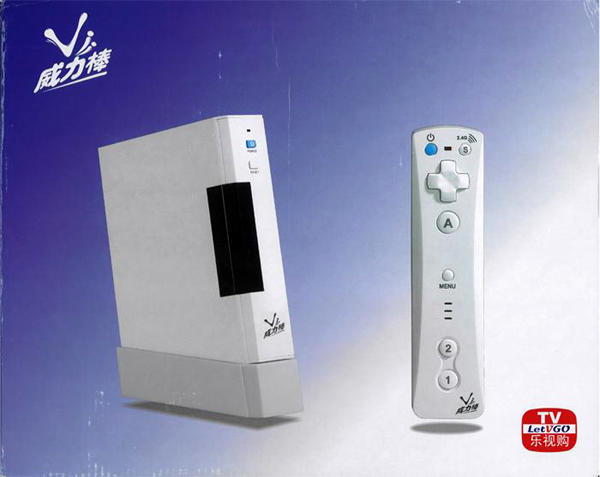
"Had the iQue Wii been released in time with the 2008 Beijing Olympics, iQue would have gone down a very different path than it has now. In the end, everything we've done for the Wii ended up bearing fruit in Hong Kong and Taiwan, as if we developed products for these two markets." Said iQue’s former employee. The Wii was eventually released in Taiwan in July 2008 and Hong Kong in December 2009. Sarcastically, as the iQue Wii waited for the approval that never came, a Chinese company released a game console called the Vii, and sold at a price of 1280 RMB. This knockoff game console not only sounded like the Nintendo Wii, but its console and controller designs also looked like that of the Wii. The workmanship however, was coarse and terrible. "At the time, we were more hopeless by the day on policy-related issues." Said iQue's former employee.
Not long after the Wii fell through in China, Dr. Yen resigned from iQue and sold all his stock shares to Nintendo. After Nintendo took over, Nintendo transferred a Japanese executive who previously worked in places including Australia and Germany to Suzhou to take the place of Dr. Yen. iQue lost its independence and became a 100% Nintendo-owned subsidiary.
After leaving iQue, Dr. Yen kept in close cooperation with Nintendo with various American companies under his control. iGware, the company that provided cloud technology for Nintendo, was acquired by Acer for US$ 320 Million in 2011. The company was renamed Acer Cloud Technology and the eldest son of Stan Shih became its general manager. In 2013, Acer's global president position was reelected. Dr. Yen, almost in his 60s, was considered the most likely candidate, yet he eventually lost to Jason Chen from Taiwan Semiconductor Manufacturing Co., Ltd.
Dr. Yen seldom shared his iQue experience with foreign media. When Dr. Yen was interviewed by Gamasutra at the end of 2006, Dr. Yen introduced himself: "I have never been directly involved in the gaming industry. However, I have stayed in the surrounding area for 17 years."
"What kind of person was Yen? First of all, don't praise him like a god, as he was not a legend. Secondly, his personal traits were unlike that of an engineer, his speech and action unlike a businessman, and more like an artist. Lastly, he was not such a low-key hardworking person as the media portrayed: he also focused a lot on building his personal brand." Said iQue's former employee. From his perspective, Yen has a good business acumen. He was good at grasping opportunities and was highly efficient at allocating his attention. "He wouldn't waste a single minute on a pointless person."
He also had a "distortion forcefield like that of Steve Jobs", attracting employees, investors and media. He rarely accepted interviews, yet if he met a valuable member of the media, he would become a very good storyteller. When iQue was first founded, Dr. Yen told the media that he was not a businessman, and would not run iQue as a business. His founding mission was to help the Chinese game market grow.
"Never ask me the question 'Why did you come to China to make video games when you had such a good resume?' The first time I heard such a question, it felt like people were trying to force words into my mouth. I wanted to make something great, build an industry, and was holding a fervent hope, yet I was asked such a question."
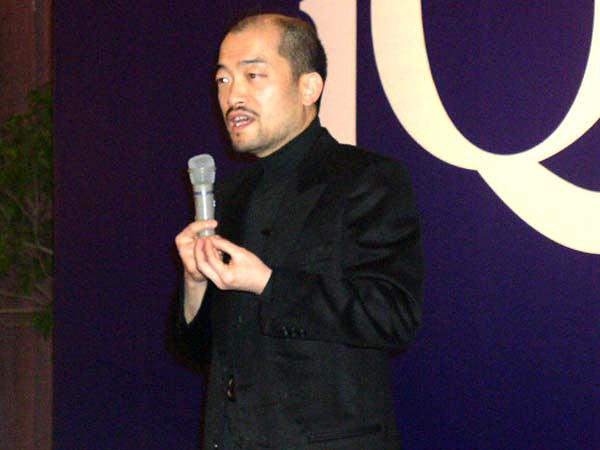
But in essence, Yen was still a businessman. The layout of iQue was more targeted towards the need to pursue market and capital. Compared to making products, Yen was more focused on the business model. He hired veterans from various industries, regardless of their enthusiasm in video games, nor did he care whether a team shared the same value and vision. During his years at iQue, Yen neither focused on building his own development team, nor did he actively support domestic third party developers.
"As an investor, how would you judge if iQue was a project worth investing in? Market opportunities, team skills and product quality--iQue had all of those. However, the philosophy, value and vision--the invisible and intangible aspects of the company--received less attention as they could not be used to estimate the success rate of a project. However, it was exactly those invisible and intangible aspects that caused iQue to go downhill." Said iQue's former employee. From his perspective, the failure of iQue was not just a matter of the greater environment, but more importantly, iQue never fully focused on building the China game industry in the first place.
"If you noticed it, when the FUZE gaming console made its first announcement, some veteran gamers gave special focus on how pure the founding mission of FUZE is, in other words, does Wang Feng, the CEO of FUZE, plan to revitalize the Chinese game industry from the bottom of his heart? Perhaps veteran gamers did not have the skills to systematically analyze the success rate of a company, but the intuition could tell them that the future of the company depends on the trueness and pureness of the founding mission." Said iQue's former employee.
Two years is a cycle: The first two-year was the iQue Player and the iQue GBA, the second two-year was the DS, and the third two-year was the Wii." Said the iQue former employee. The first product in Mainland China after Nintendo took over iQue was the iQue DSi, pre-installed with the game Nintendogs. Released in December 2009 with an MSRP of 1498 RMB.
"We had two options. We could choose either New Super Mario Bros. or Nintendogs as a pre-installed title. We eventually picked the latter, because this was the game the Japanese HQ least wanted to see pirated, and also because this game best attracts the non-player audience. From the market feedback, this strategy was a success." Said the former iQue employee. The localization for Nintendogs was finished as early as 2006, but it was not released until three years later. The game was only released pre-installed on the DSi and never released on a physical cartridge. An average import DSi console costed around 1100 RMB at the time, and flashcarts were already ubiquitous. However, under the drive of Nintendogs, the iQue DSi still had a pretty good sales record. "It's just that the gamer and non-gamer population have swapped."
To work towards this goal, iQue invested far more in marketing than before. Nintendo appointed the Japanese advertising agency Dentsu in charge of the marketing of the iQue DSi in Mainland China, using a copy of the advertising mode in Japan, with a budget of over 10 Million. Yet back Yen's time, even for the iQue DS, a product with 100 Million in revenue, there was only a 100 Thousand budget for marketing.
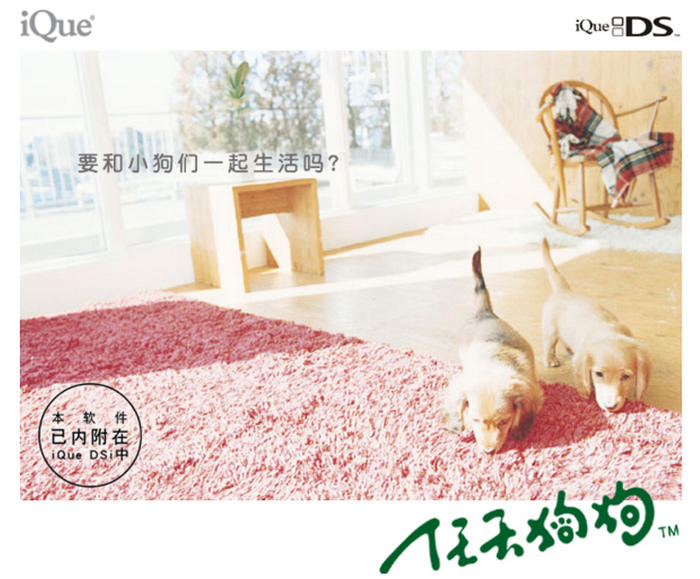
"When Dr. Yen was still in charge, he had a firm grip on iQue. When the Japanese came, they were totally lost." Said the former iQue employee. In terms of distribution channels, the rise of e-commerce marked the gradual weakening of offline channels like game stores, and iQue's channel management fell into chaos. In 2011, members in the sales department were found to have been lining their own pockets, by stocking from the company at a low price and selling through their own channels. This led to the disband of iQue's Eastern China marketing team, which oversaw the largest sales region for iQue. "Honestly, I was not surprised at all. Their manipulation in sales was rather deep, with lots of personal interest entangled, and a solid clique formed among them. I think the Japanese have long tried to bust this situation, since they were the least tolerant to manipulation under the table and forming cliques." Said the iQue employee.
Another channel for purchasing DSi software was through the DSi shop. Due to policy reasons, the iQue DSi could not connect to the American or Japanese shop, and could only download iQue DSiWare from the iQue DSi shop. Between 2009 and 2011, iQue released a total of 31 DSiWare, most of which are applications, puzzle games, and remakes of retro games. After the iQue DSi, iQue gave up in entirety the plan to publish games on their own in Mainland China, and transformed into Nintendo's outsource base. On one hand, they took up the role of "the Official Translation group", working on the Simplified Chinese localization and testing for Nintendo's overseas releases like those in Hong Kong and Taiwan; on the other hand, they worked on retro games ports for Nintendo's official internal emulator "Virtual Console", and undertook outsourced projects with low technical requirement. "You could tell how much this transformation disappointed us veteran iQue staff. We did not join iQue to work on outsource projects." Said the iQue employee.
"The iQue 3DS was released when everyone thought iQue was done for and no products would ever come from them. However, the iQue 3DS came out, giving people the feeling that iQue was going all out, and the unhacked environment also had the potential for market growth." Said an iQue follower and gamer. Three years after the release of the iQue DSi, the iQue 3DSXL was released in China in December 2012. Due to the popularity of smartphones, the handheld market had started to decline. The iQue 3DS came with two pre-installed Simplified Chinese games: Super Mario 3D Land and Mario Kart 7, bundled with the console at a set price of 1699 RMB. These were the last two games officially published by iQue in Mainland China.
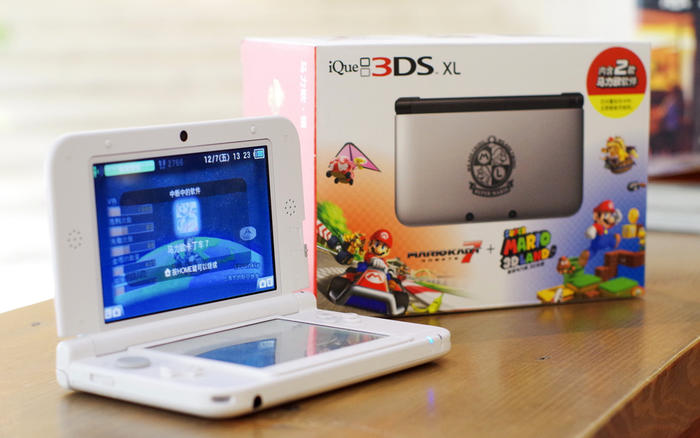
The 3DS implemented a region lock policy, so the iQue 3DSXL could not play any import cartridges from Japan, The Americas, Europe, Korea, and even Hong Kong or Taiwan cartridges in Traditional Chinese. The only exception the were Hong Kong and Taiwan games with integrated Simplified Chinese script, with only around a dozen in existence. All of these games were localized by iQue, but never released in China. These Simplified Chinese content were hidden away in Hong Kong and Taiwan edition cartridges, released in these two markets, and imported back into China via import channels like Taobao. A long detour just to play these games on the iQue 3DS. In some sense, the Mainland market has become a vassal of the Hong Konger and Taiwanese markets.
Aside from region locking, the iQue 3DS also had no Nintendo eShop, which was present on all other models, barring players from buying digital games. "The eShop was like a software marketplace, which was very troublesome to get it approved in China. It was already huge bother back when we were making iQue DSiWare." Said the iQue employee. The iQue 3DSXL shipped 5,000 units at launch and production ceased one year later. The iQue 3DSXL was said to have sold only 10,000 units, and only two games were ever officially released for the console.
"iQue started selling the 3DS so we had high expectations, even thinking that a new era had come. However, iQue never released a game since launch, and only released some inconsequential stuff via Nintendo of Hong Kong. Finally last straw was Pokemon X/Y, which came with no Chinese support. This was the final nail in the coffin for the iQue 3DS. There was nothing aside from the two pre-installed games on the official website." A player complained. After that, iQue fell into dead silence and never released a single hardware or software under their brand since.
"My first iQue console was the iQue 3DS." Said a player. When iQue was founded more than a decade ago, he was an elementary school student, a light user who was the target audience of iQue. Dr. Wei Yen once said: "iQue must promise to the Chinese parents that all of the iQue games are the best, virtuous, and could help their children and teens transcend wisdom." However, the barrier between the "95%" and the "5%" were hard to penetrate. Out of fear of video gaming affecting his studies, his parents only bought him an import GameBoy Color and a few cartridges. Back then, the GameBoy Advance was already popular among his classmates, most playing import models, but some also bought the iQue edition. He recalled seeing the Simplified Chinese versions of Super Mario Advance and Wario Land 4--the two games bundled with the iQue GBA. Aside from the Super Mario franchise, there were a lot of fans of Kirby and Golden Sun among his classmates. He is a loyal player of the Pokemon series. Like everyone else, he was playing the pirated version. After he entered junior high school, he found that less people around him were playing Nintendo. "Perhaps it was because they considered Nintendo games childish, so they changed their interest and went to play more adult--targeting games."
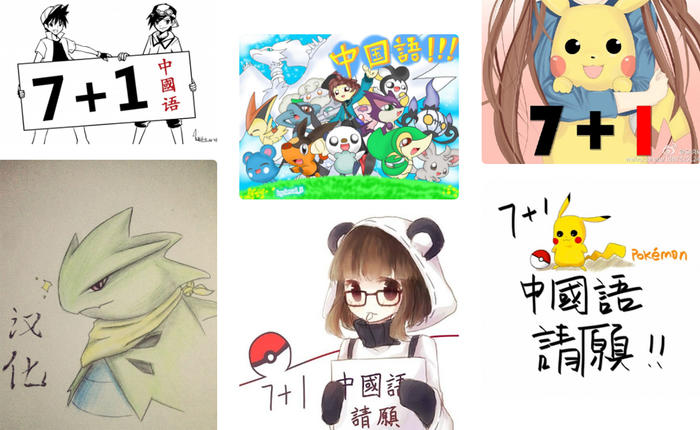
One day, when he was searching for DS games on the internet, he was surprised to discover that the DS had been officially released in China, with even official Simplified Chinese games. Following this trail, he found the official website for iQue and started following the company. When he was in the 11th grade, the iQue 3DS was released in China, and he bought one with his savings. This was his first iQue product. Region lock wasn't a big issue for him. "I didn't play much of the third party games, and the Hong Kong copies of first-party titles were compatible with the iQue, without the need need to worry about games not getting approved." He bought a number of Hong Kong 3DS cartridges with Simplified Chinese support, an American 3DS, and an iQue DSi. He also bought an iQue Player, and a Multiplayer Box/Controller set, and downloaded all 14 iQue Player games with the iQue Tickets. "I bought all of these for nostalgia." He said, "Players like me who are still following Nintendo and iQue on a daily basis and not swept away by smartphone games have some sense that they should supporting genuine copies. Unlike the past where everyone was playing pirated games, sometimes not even knowing they pirated." After he went to college, he shifted most of his focus onto his American 3DS. He still brought the iQue 3DS with him, but only for sporadic sessions of Mario Kart 7. "I bought the iQue 3DS back then for Chinese langauge games, which were unavailable to the Japanese consoles, and also for the hope to bargain for more Chinese localization by supporting iQue and the Chinese language market." He said. To support iQue, he bought almost all of the iQue DSiWare from the DSishop. However, to his disappointment, Pokemon X/Y, released in 2013, did not come with Chinese support.
In January 2014, the State Council released a notice, allowing foreign companies to manufacture and sell gaming devices within the Shanghai Free-Trade Zone. This was considered a signal of "China lifting the video game ban." Four months later, Satoru Iwata told Reuters in an interview that "lifting the ban does not solve all issues." As he predicted, Microsoft's Xbox One and Sony's PlayStation 4 were still met with many obstacles when they were released in Mainland China one year later. Iwata disclosed that Nintendo would not release game consoles directly in the Chinese market as Microsoft or Sony did, but would rather design a new game console for the countries with lower income and less exposure to videogames. Nintendo had a similar idea 10 years ago, known as the iQue Player. In March 2015, Nintendo announced its entry into the smartphone game market, and for the first time, disclosed the new console codenamed "NX" [now known as the Switch and released in China in December 2019]. Soon after, the development of "a console dedicated to developing countries" was halted. After Satoru Iwata passed away in July 2015, Nintendo made no more announcement of its places regarding the Mainland Chinese market.
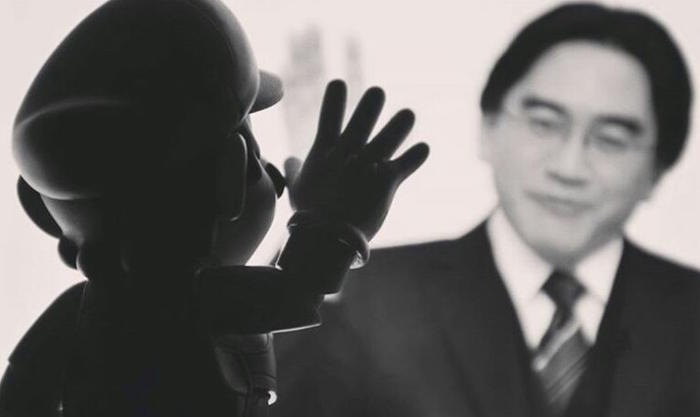
8 consoles, 14 iQue Player games, 8 GBA games, 6 DS games, 31 DSiWare, and 2 3DS games: This was the entire iQue product lineup since its founding 14 years ago. Today, iQue was still working in the same location as it did 14 years ago, but the area shrunk by a half. Early this year, the company’s legal representative was changed from “Tsukasa Seiji” to “Hikawa Takahito” (Director and General Manager). This February, Nintendo HK launched a WeChat official account, whose entity was iQue (China) Ltd. One week later, Nintendo announced Pokemon Sun/Moon, marking the first Chinese localization, both Simplified and Traditional, 20 years since the series debut. Like other Nintendo games without a China release but with a Simplified Chinese script, iQue was behind its Simplified Chinese localization. iQue turned down the request for an interview, whose representative said iQue, currently a foreign company, has its public relations now under the full control of the Japan HQ, and is therefore unable for an interview. To the left of iQue's frontdesk stood a glass counter. Inside it displayed the 3 different variants of the iQue 3DSXL–"Mario White", "Mario Red Gold" and "Mario Silver". There are no games displayed in the counter, aside from three manuals for iQue Player games: Paper Mario, The Legend of Zelda: Ocarina of Time, and Dr. Mario.
"When I first left iQue, I was in a deep loss, as if I were witnessing the slow death of a loved one. However, when I finally went onto my own path and looked back, I only saw that experience as an opportunity to be a witness. If iQue were to have a good future, then I should send them my best wishes; should iQue perish one day, then I hope its grave served as a warning for the latecomers. The road is long, so there will definitely be those who come after us." Said the former iQue employee.
"The big shots back then were only focused on their own immediate interests, and did not treat iQue as their home. It's the same with the middle and upper levels. They might blame the current predicament on external causes, but I think the cause comes from within--the people. The key to iQue's ups and downs were the 'people'." Said the former iQue employee.
"I was very glad to have left iQue, even though I had quite a good salary, and I could get even more money if I had waited for the dismissal. After I left iQue, I made a few of my own games which fed my own team. You can get a sense of achievement from someone loving your game, which you could never get at iQue." Said the former employee.
"These memories were intriguing to recall. They sometimes feel like a lifetime ago, but also feel like yesterday. This job had a huge impact on me personally, and I'm very thankful for my years in iQue. The strictness and scrutiny from the Japanese even affected my way of doing things today. It was a rare training opportunity." Said the former employee.
"The iQue Player, iQue Card, translations, packagings, posters, iQue's online stores. These were the unique aspects of iQue. All others were more on the spiritual level." Said the iQue fan.
"神游, iQue's Chinese name, means to 'Transcend Wisdom', also, it demonstrates the pleasure during creative activities. In China, most of the translations are transliterations and not paraphrases. Some have suggested that I do the former because even domestic brands do so. However, I think they are uninteresting so I picked the latter." Said Dr. Yen on choosing 神游 as the company's Chinese name. In the Chinese language, 神游 had another meaning: "To journey to a place through imagination or dreams, without being physically present".